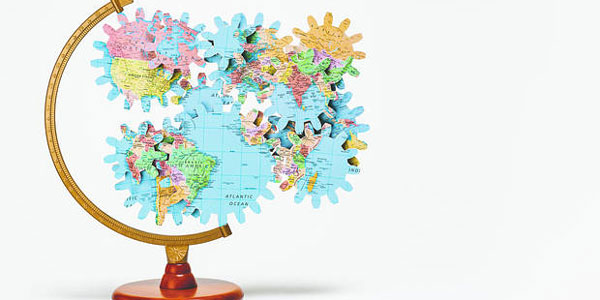

Colonialism and the history of multinational companies are connected. European kings and queens asked many companies to send the first international expeditions. Some of the first multinational companies in the world ran some of the colonies that were not controlled by Spain or Portugal. One of the first was the East India Company. It was made in the year 1600. This British company traded and explored around the world, and it also had trading posts in India. The Swedish Africa Company, which started in 1649, and the Hudson's Bay Company, which started in 1670, are two other early examples of multinational companies.
4 MNC Types
Multinational firms may be divided into four kinds.
Decentralized Corporation
A decentralized company has offices in its home country and throughout the world. Decentralized multinationals can do it more, quicker. Each office makes its business judgments.
A Centralized Global Corporation
A multinational firm has a home country headquarters. There, executives and managers control global and domestic activities. They make commercial choices, not overseas office managers. Major operations must be approved by HQ.
International Division Corporation
A multinational corporation's international division oversees all foreign activities. This framework simplifies corporate decisions and activity in overseas markets. Independent operation might be problematic when corporate action and agreement are needed. Keeping and conveying the multinational's enterprise-wide brand image might be difficult.
Transnational Corporation
A multinational firm has a parent-subsidiary structure, where the parent business manages subsidiaries abroad and at home. The parent's assets, such as R&D data, can be used by subsidiaries. Filial may be distinct brands. Parent companies frequently oversee their local and overseas subsidiaries.
Advantages

A global presence might provide access to new markets and sales opportunities that are not available or practical when operating only domestically. For instance, having a company in a foreign nation like India can enable a business to satisfy the vast Indian demand for specific products without incurring the costs of long-distance shipping. Multinational corporations can drop prices and boost global customer purchasing power by producing identical goods at lower costs. Additionally, multinational corporations might benefit from the reduced tax rates offered in nations that welcome their direct investments and the employment they will generate. Notably, the European Union intends to put a minimum tax on business profits of 15% beginning in 2023.
Disadvantages
The cheaper pricing comes with a trade-off: domestic jobs are exported. This may make it more difficult for long-term employees in outsourced industries to find new positions and raise unemployment in the home country. Multinational firms are criticized for having the potential to become monopolies, which may result in higher consumer costs, reduced competition, and stifled innovation. Because of the potential for their operations to promote land expansion and the depletion of local and natural resources, multinational firms are also thought to hurt the environment. Small, local enterprises could also fail as a result of multinational corporations. Additionally, activists have asserted that transnational corporations transgress ethical standards. They charge that they circumvent the law to further their commercial objectives.



